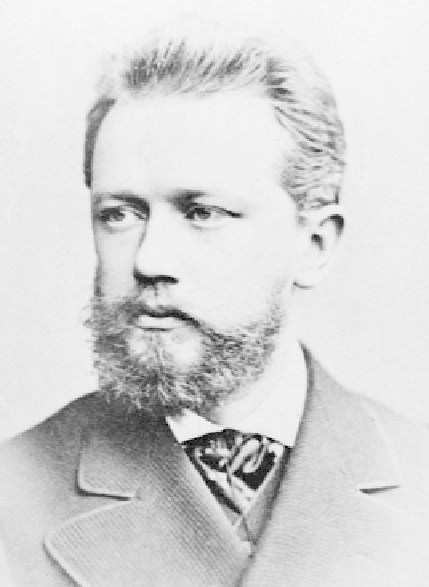Travel Reference
In-Depth Information
held for 25 years until Garry
KASPAROV
won the
title at the age of 22 in 1985. In poor health to
defend his title, he lost the rematch to Botvinnik
in 1961, the second time that Botvinnik had
regained his title in the 25 years that he domi-
nated world chess. Although Tal never regained
his world title, he remained a strong interna-
tional player, winning four more Soviet champi-
onships and playing competitively in four other
candidates' tournaments for the world title
between 1962 and 1985. In 1988 he surfaced
again as world champion, this time of blitz, an
ultrarapid variation of chess. Kidney failure was
the reason behind his death in 1992.
BACHEV
's policy of glasnost (openness), he was
recognized as a great director and all his previ-
ously banned films were shown.
Tchaikovsky, Petr Ilich
(1840-1893)
composer
Perhaps Russia's most famous composer, Tchai-
kovsky first studied law at St. Petersburg School
of Jurisprudence before entering the St. Peters-
burg Conservatory in 1862. After graduation, in
1865 he was appointed professor at the Moscow
Conservatory. A disastrous marriage in 1877 (he
was homosexual) compelled him to resign his
professorship the following year. Again in St.
Petersburg, he made his debut as conductor in
1887 with a program of his own compositions.
In 1888 he undertook a successful international
tour as a conductor, meeting other famous com-
Tarkovsky, Andrei Arsenevich
(1932-1986)
film director
Tarkovsky became internationally famous for his
film
Andrei Rublev,
which was completed in 1966
but could not be shown in the Soviet Union
until 1971. He was born into a Russian family in
Moscow; his father was the poet Arseny Tarkov-
sky, and he graduated from the State Film Insti-
tute (1961), where he studied under Mikhail
Romm. His first film,
The Steam Roller and the Vio-
lin
(1961), was followed by
Ivan's Childhood
(1962), a film that pointed to a trend among
young filmmakers in a direction away from the
dogmas of socialist realism. Tarkovsky's break-
through came with
Andrei Rublev,
which was
awarded the International Critics' Prize, in 1969.
Based on the life of the great medieval icon
painter Andrei
RUBLEV
(ca. 1360-1430), the film
deals with the relationship of a painter with the
environment and the limits of artistic expres-
sion, a clear metaphor for the fate of Soviet
artists in the
BREZHNEV
era. Tarkovsky made two
more films, but the Soviet public and critics
found him difficult to comprehend. He moved
abroad and made films in Italy (
Nostalgia,
1983)
and Sweden (
The Sacrifice,
1985, which won a
prize at Cannes). Tarkovsky defected in 1984
and was deprived of his Soviet citizenship. He
died of cancer in Paris. Under Mikhail
GOR
-
Petr Ilich Tchaikovsky
(Library of Congress)


Search WWH ::

Custom Search